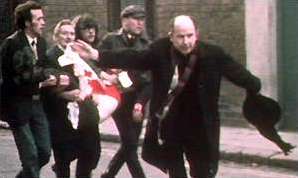More articles
Renato Biagetti -
1
2
3
4
Stefano Cucchi - 1
Riccardo Rasman - 1
Alfredo Cospito - 1
Amir Locke - 1
Nicola Tommasoli - 1
Federico Aldrovandi - 1
Gaetano Bresci - 1
Giuseppe Uva - 1
2009 Kunduz airstrike - 1
Ricardo Lopez - 1
Paragraph 175 - 1
Samb Modou, Diop Mor - 1
Emmanuel Chidi Namdi - 1
The Death Match - 1
Operation Barrel Roll - 1
Bhutanese Refugees - 1
Fritsch-Blomberg Scandal - 1
Ishaqi Massacre - 1
Seymour Hersh, Copper Green Report - 1
My Lai Massacre - 1
Hill 303 Massacre - 1
Bus 300 Incident - 1
Abu Ghraib - 1
Christian Taylor - 1
Lockheed Scandal - 1
Nigergate - 1
Freedom Flotilla Incident - 1
Rwandan Genocide - 1
Augusta Affair - 1
Giorgio Coda - 1
Pietro Koch - 1
Piazza Fontana Bombing - 1
Villa Ada Fascist Raid - 1
Ungdomshuset - 1
Murder of Giulio Regeni - 1
Genoa G8 Protests - 1 2
Sean Bell - 1
Oscar Grant - 1
Kenneth Chamberlain Sr. - 1
Trayvon Martin - 1
Kimani Gray - 1
Amadou Diallo - 1
Michael Brown - 1
John Crawford III - 1
Manzanar - 1
Executive Order 9066 - 1
Andrea Salsedo - 1
1969 Rome Attacks - 1
NO TAV - 1 2 3
Tancia Battle - 1
Operation Demetrius - 1
Afghanistan War Airstrike List - 1
Arghanistan War Civilian Casualties - 1
Extraordinary Rendition - 1
Italian Red Week - 1
Nome - 1
Nome - 1
Nome - 1
Nome - 1
Nome - 1
Varie - 1 2 3 4
Murder of Timur Kacharava
Timur was an active participant in the anti-fascist and anarchist community of St. Petersburg, and repeatedly participated in anti-fascist demonstrations. He was one of the organizers of the "Food Not Bombs" movement in Saint Petersburg, whose members prepared food for the homeless and fed them on Vladimirskaya Square; in connection with this activity, he received threats from neo-Nazis. According to witnesses, on November 13, 2005, at about 7:00 pm, Kacharava and his friend Maksim Zgibai were attacked by several short-haired young men with knives who shouted “Antiantifa”. Kacharava received six stab wounds in the neck, from which he died. Zgibay received a head injury and a chest wound and was hospitalized in serious condition.
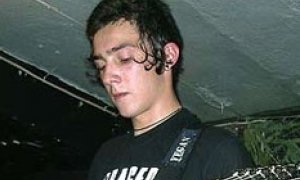
Killing of Dax
Davide Cesare, also known as Dax (1977 – March 16, 2003) was an Italian anti-fascist activist from Rozzano, who was stabbed to death by far-article activists in Milan. On the night of March 16, Davide was in a bar in Milan togheder with three other friends (who were also militants of the O.R.So. social center). The four were attacked by Federico, Mattia and Giorgio Morbi. Two of the four were stabbed: one of them, wounded by a dozen stab wounds in the vital parts, was saved only after an operation that lasted the whole night, while for Dax the blows were fatal, he was brought to the hospital but died in the ambulance.
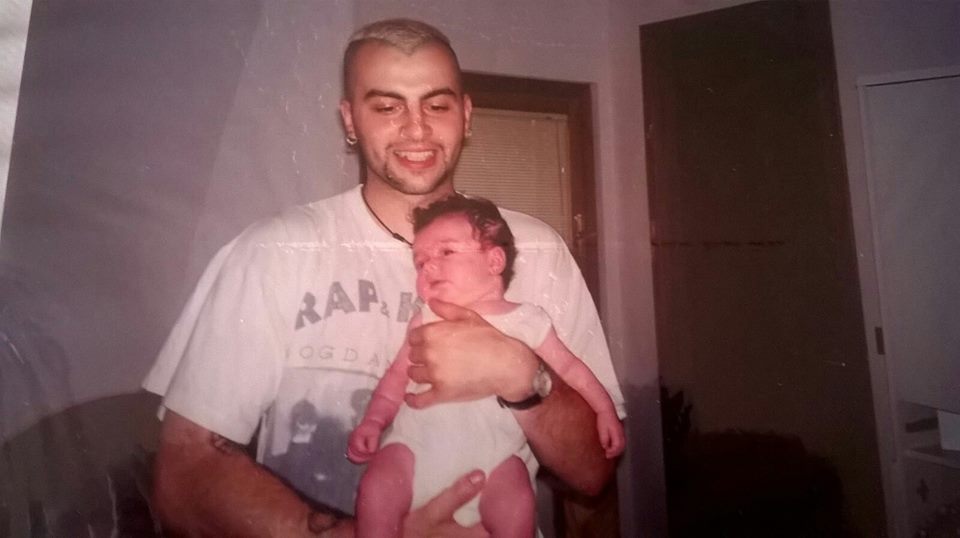
Ballymurphy massacre
The Ballymurphy massacre was a series of incidents between 9 and 11 August 1971, in which the 1st Battalion, Parachute Regiment of the British Army killed at least nine civilians in Ballymurphy, Belfast, Northern Ireland, as part of Operation Demetrius (internment without trial). The shootings were later referred to as Belfast's Bloody Sunday, a reference to the killing of civilians by the same battalion in Derry a few months later. The 1972 inquests had returned an open verdict on all of the killings, but a 2021 coroner's report found that all those killed had been innocent and that the killings were "without justification".

Abu Omar case
The Abu Omar case refers to the kidnapping and transfer of the imam of Milan to Egypt, his country of origin, where he was imprisoned and tortured. The matter has been reported in the international press as one of the best known and best documented cases of illegal action carried out by the Central Intelligence Agency in the context of the global war on terrorism. Twenty-three CIA agents and two Italian agents were convicted of the kidnapping. The imam received substantial compensation with a sentence handed down in Italy, a country where he cannot return, however, because he is accused of international terrorism with a pending arrest warrant.

Don't ask don't tell
"Don't ask, don't tell" (DADT) was the official United States policy on military service by gay men, bisexuals, and lesbians, instituted during the Clinton administration. The policy was issued under Department of Defense Directive 1304.26 on December 21, 1993, and was in effect from February 28, 1994, until September 20, 2011. The policy prohibited military personnel from discriminating against or harassing closeted homosexual or bisexual service members or applicants, while barring openly gay, lesbian, or bisexual persons from military service. This relaxation of legal restrictions on service by gays and lesbians in the armed forces was mandated by United States federal law Pub.L. 103–160 (10 U.S.C. § 654), which was signed November 30, 1993. The policy prohibited people who "demonstrate a propensity or intent to engage in homosexual acts" from serving in the armed forces of the United States, because their presence "would create an unacceptable risk to the high standards of morale, good order and discipline, and unit cohesion that are the essence of military capability".

Haska Meyna wedding party airstrike
The Haska Meyna wedding party airstrike was an attack by United States military forces on 6 July 2008, in which 47 Afghans were killed. The group was escorting a bride to a wedding ceremony in the groom's village in Haska Meyna District of Nangarhar Province, Afghanistan. The United States Government denied that civilians were killed in the incident. An investigation by the Afghan Government disagreed and determined that 47 civilians, including the bride, 39 women and children and 8 teenagers, had been killed, another nine wounded.
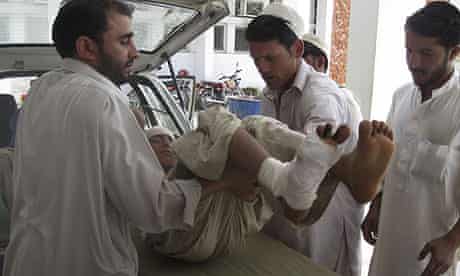
Granai airstrike
The Granai airstrike, sometimes called the Granai massacre, refers to the killing of approximately 86 to 147 Afghan civilians by an airstrike by a US Air Force B-1 Bomber on May 4, 2009, in the village of Granai in Farah Province, Afghanistan. The United States admitted significant errors were made in carrying out the airstrike, stating "the inability to discern the presence of civilians and avoid and/or minimize accompanying collateral damage resulted in the unintended consequence of civilian casualties". The Afghan government has said that around 140 civilians were killed, of whom 22 were adult males and 93 were children. Afghanistan's top rights body has said 97 civilians were killed, most of them children. Other estimates range from 86 to 147 civilians killed. An earlier probe by the US military had said that 20–30 civilians were killed along with 60–65 insurgents. A partially released American inquiry stated "no one will ever be able conclusively to determine the number of civilian casualties that occurred".

Collateral murder
The July 12, 2007, Baghdad airstrikes were a series of air-to-ground attacks conducted by a team of two U.S. AH-64 Apache helicopters in Al-Amin al-Thaniyah, New Baghdad during the Iraqi insurgency. On April 5, 2010, the attacks received worldwide coverage and controversy following the release of 39 minutes of gunsight footage by WikiLeaks. The video, which WikiLeaks titled Collateral Murder, showed the crew firing on a group of men and killing several of them, then laughing at some of the casualties, all of whom were civilians, including two Reuters journalists. An anonymous U.S. military official confirmed the authenticity of the footage, which provoked global discussion on the legality and morality of the attacks. Press reports of the number killed vary from 12 to "over 18". 2 journalists were killed, and 2 children were wounded.

Bagram torture and prisoner abuse
In 2005, The New York Times obtained a 2,000-page United States Army investigatory report concerning the homicides of two unarmed civilian Afghan prisoners by U.S. military personnel in December 2002 at the Bagram Theater Internment Facility in Bagram, Afghanistan and general treatment of prisoners. The two prisoners, Habibullah and Dilawar, were repeatedly chained to the ceiling and beaten, resulting in their deaths. Military coroners ruled that both the prisoners' deaths were homicides. Autopsies revealed severe trauma to both prisoners' legs, describing the trauma as comparable to being run over by a bus. Seven soldiers were charged in 2005.
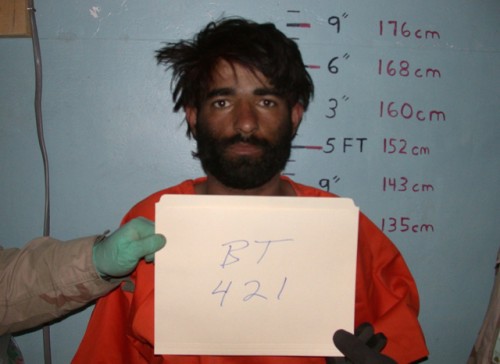
Haditha massacre
The Haditha massacre (also called the Haditha killings or the Haditha incident) was a series of killings on November 19, 2005, in which a group of United States Marines killed 24 unarmed Iraqi civilians. The killings occurred in Haditha, a city in Iraq's western province of Al Anbar. Among the dead were men, women, elderly people and children as young as 1, who were shot multiple times at close range while unarmed. It was alleged that the killings were a response to the attack on a convoy of Marines with an improvised explosive device that killed Lance Corporal Miguel Terrazas.

Bloody Sunday (1972)
Bloody Sunday, or the Bogside Massacre, was a massacre on 30 January 1972 when British soldiers shot 26 unarmed civilians during a protest march in the Bogside area of Derry, Northern Ireland. Fourteen people died: thirteen were killed outright, while the death of another man four months later was attributed to his injuries. Many of the victims were shot while fleeing from the soldiers, and some were shot while trying to help the wounded. Other protesters were injured by shrapnel, rubber bullets, or batons, two were run down by British Army vehicles, and some were beaten. All of those shot were Catholics. The march had been organised by the Northern Ireland Civil Rights Association (NICRA) to protest against internment without trial. The soldiers were from the 1st Battalion of the Parachute Regiment ("1 Para"), the same battalion implicated in the Ballymurphy massacre several months before.
